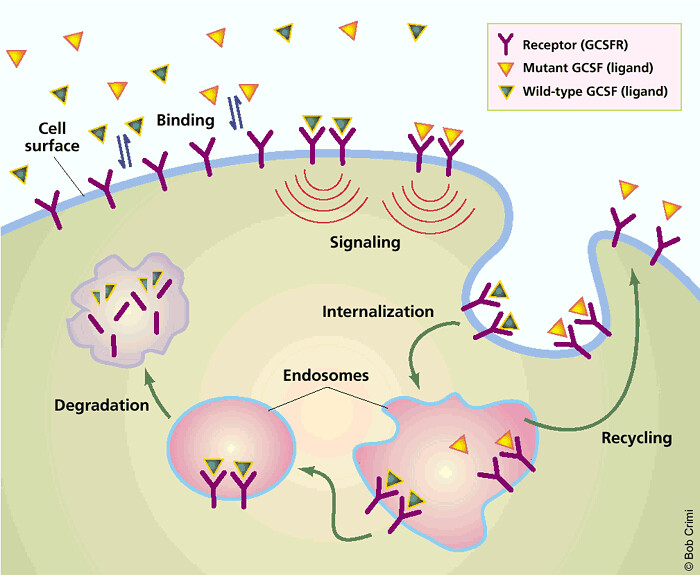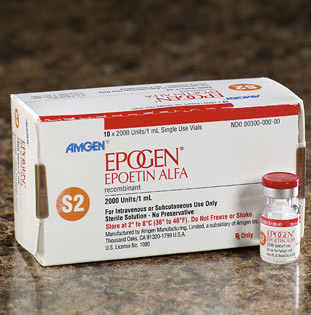有什麼新的試管嬰兒技術?
你好:GCSF是針對子宮內膜薄,而試管嬰兒失敗的個案,請看以下的報導:
GCSF目前在美國食品藥物管理局(FDA)是允許用在病人身上的一個藥物,它的確增加試管嬰兒的成功率非常戲劇化。
戲劇化增加試管嬰兒成功的~G-CSF~
http://www.youtube.com/watch?v=wehNVJ97TAs
多次試管嬰兒失敗的新救星:G-CSF
http://www.youtube.com/watch?v=fr7GZKrDrAk


G - CSF的治療可改善IVF週期中子宮內膜不足
博元婦產科不孕症試管嬰兒中心:蔡鋒博,陳昭雯醫師
在體外授精(IVF)的週期,治療的藥物稱為粒細胞集落刺激因子(G - CSF)的不足,大大提高子宮內膜(子宮內層),根據公佈的一份報告,在02月15日電生育與不孕 -的官方雜誌的美國生殖醫學學會(ASRM)。報告的病例也表明,G - CSF的治療可在一般情況下,提高試管嬰兒受孕機會。
的G - CSF是一種細胞因子(蛋白質分子之間的溝通,以促進細胞)已被FDA批准用於其他臨床適應症。
研究人員從紐約市的中心人類生殖(CHR)的紐約州和生育第二個中心報告四個婦女子宮內膜高度不足,反應遲鈍,面對傳統的試管嬰兒治療週期取消。在所有四個個案中,子宮內膜灌注的G - CSF的子宮內膜擴大到最小厚度為7mm的大約48小時之內,允許胚胎移植。令人驚訝的是,所有4名患者也懷了孕。
在大約 1%的IVF週期,子宮內膜薄停留太成功植入胚胎,即使治療。在這樣的IVF週期,病人和醫生面對兩個可憐的選擇:他們要么接受較低的懷孕機會,儘管不足子宮內膜移植胚胎,也可以取消胚胎移植和冷凍胚胎的希望所有美好的未來週期。不幸的是,婦女子宮內膜不足又常常表現出不足,子宮內膜在今後週期。這種情況證明了這兩名病人報告病例與歷史的重複試管嬰兒失敗,由於子宮內膜薄。
“傳統的治療方法的不足,子宮內膜有參差不齊的成功最好的。無G - CSF的灌注,這些患者中,有可能,就不會達到胚胎移植,”解釋大衛Barad醫師,臨床藝術總監在人權委員會和一名資深作家報告。 “那他們都還設想了一個大驚喜,當然,相當了不起。”
“療效的G - CSF的改善子宮內膜,並有可能懷孕率在一般情況下,仍然需要在隨機對照試驗證實,補充說:” 諾伯特Gleicher博士的帶領下提交的報告和醫務主任的染色體。 “事實上,我們已經開始兩個這樣的試驗,以測試兩種假設,但結果出來之前,先在2011年以後,我們告誡不要過度解釋結果這個小試研究。”
G-CSF treatment improves inadequate endometrium during IVF cycles
24. February 2011 03:26
During in vitro fertilization (IVF) cycles, treatment with a medication called granulocyte-colony stimulating factor (G-CSF) significantly improves inadequate endometrium (lining of theuterus), according to a report published electronically on February 15 in Fertility and Sterility - the official journal of the American Society for Reproductive Medicine (ASRM). The reported case series also suggests that G-CSF treatment may, in general, improve IVF pregnancy chances.
G-CSF is a cytokine (protein molecules that facilitate communication between cells) that has already been FDA approved for other clinical indications.
Researchers from New York City-based Center for Human Reproduction (CHR) and a second NY fertility center reported on four women with highly inadequate endometrium, unresponsive to conventional treatments and facing IVF cycle cancellation. In all four cases, endometrial perfusion of G-CSF expanded the endometrium to a minimal thickness of 7mm within approximately 48 hours, allowing for embryo transfer. Surprisingly, all four patients also conceived.
In approximately 1% of all IVF cycles, the endometrium stays too thin for embryos to successfully implant, even with treatment. In such IVF cycles, patients and physicians face two poor options: they either accept lower pregnancy chances and transfer embryos despite inadequate endometrium, or they can cancel the embryo transfer and freeze all embryos in hope of better future cycles. Unfortunately, women with inadequate endometrium often show inadequate endometrium again in future cycles. This situation was demonstrated by two patients in this reported case series with histories of repeat IVF failures due to thin endometrium.
"Conventional treatments for inadequate endometrium have had spotty success at best. Without G-CSF perfusion, these patients, likely, would not have reached embryo transfer," explains David Barad, MD, Director of Clinical ART at CHR and one of the senior authors of the report. "That all of them also conceived was a big surprise, and is, of course, quite remarkable."
"The efficacy of G-CSF in improving endometrium, and possibly pregnancy rates in general, still needs to be confirmed in randomized controlled trials," adds Norbert Gleicher, MD, lead author of the report and Medical Director of CHR. "Indeed, we already started two such trials to test both hypotheses; but until first results become available later in 2011, we caution against over-interpreting results of this small pilot study."
SOURCE Center for Human Reproduction
沒有留言:
張貼留言